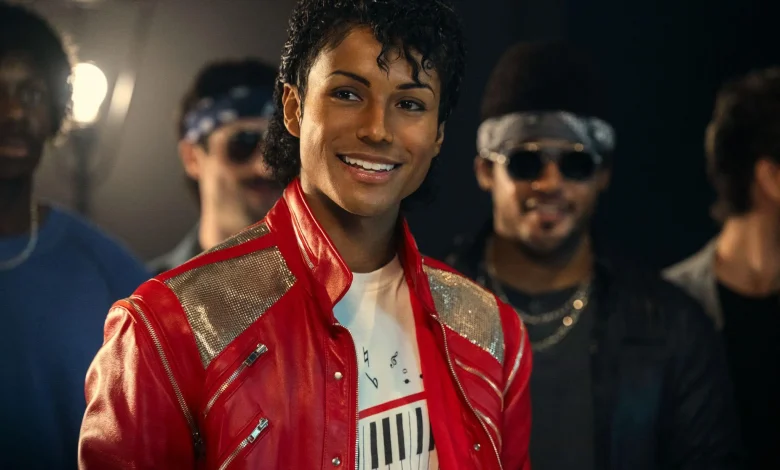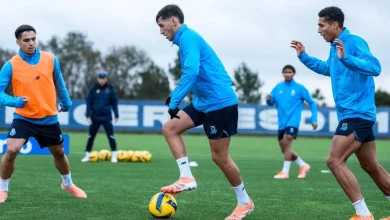Beyond Thriller: The Shocking Truths We Demand From The New “Michael” Movie by NWO Sparrow

The trailer is out y’all. For two minutes, we saw the flashes of glitter and talent, the promise of a man who defined pop music. The Michael Jackson biopic, simply titled “Michael,” is coming in 2026, and like many of you, I felt that old thrill. The glimpse of the young boy’s voice in a crowded room, the silhouette of the moonwalk, the sheer force of his presence. It is all there. But a two-minute trailer cannot possibly contain the man. It can only tease. And as a fan, as someone who understands that his art and his life were a complex, often painful, symphony, I have a plea for the filmmakers. Do not shy away from the difficult notes. Here are the five eras this movie must explain, not just depict.
First, we must understand the foundation. The Jackson 5 was not just a band. It was a family business, a cage, and a launching pad all at once. The film needs to show us the dynamic between Michael and his brothers beyond the synchronized steps and matching outfits. There was a deep bond forged in the fire of the Gary, Indiana rehearsal room, a shared dream. But there was also a friction that would later define them. Michael was the undeniable star, the tiny engine of their success. How did that affect Jackie, Tito, Jermaine, and Marlon? The movie must explore the quiet resentments, the protective instincts, and the underlying competition. We need to feel the weight of their father Joe’s gaze, a weight that fell most heavily on Michael, the most valuable asset. To understand the man Michael became, we must see the boy who was both part of a unit and tragically set apart from it.
‘Michael’: First Trailer Released For Michael Jackson Biopic
This leads directly to the second crucial era, the great breaking away. “Off the Wall” was not just an album. It was a declaration of independence. The film has to chronicle the painful, necessary process of Michael stepping out of the group’s shadow. This was not a clean break. It was a slow, agonizing metamorphosis. Imagine the conversations, the tension in the studio as he worked with Quincy Jones while his brothers waited in the wings. This period is about artistic freedom clashing with family loyalty. How did he tell them he was going solo in a real way? Was it a fight? Was it a sad, quiet understanding? This is the core of his personal narrative, the moment he chose his own destiny over the collective identity. It is a story every sibling can understand, but amplified to a global scale. The movie must make us feel both the triumph of his solo flight and the profound loneliness it likely created.
Then came the stratosphere. “Thriller” is such a monolith that we forget it was not a guaranteed success. “Off the Wall” was massive, yet it was snubbed by the Grammys. This lit a fire in Michael. The film has a duty to show the meticulous, obsessive construction of “Thriller.” This was not magic. It was hard work. We need to see him in the studio, pushing, demanding more. Arguing with Quincy over the bassline for “Billie Jean.” Convincing a reluctant MTV to play the video for a Black artist. Fighting with the label over the title track, which he was told was too scary. He did not just record an album. He engineered a cultural takeover. He broke the color barrier on television and redefined the music video as an art form. This era is about the architect at work, the relentless perfectionist who willed the biggest album in history into existence. Show us the sweat, not just the sparkle.
Of course, the sparkle would eventually attract a darkness that would forever change his story. The first allegations of sexual abuse in 1993 are a chasm that the film cannot and must not skip over. This is the most difficult part of his legacy. We do not need salacious details. We need psychological insight. The movie must attempt to show us his personal mental state during this time. The shock, the confusion, the utter world-ending betrayal he said he felt. We see the public facade, the denials, the eventual settlement. But what was happening behind closed doors? How did this trauma fracture his already fragile relationship with reality? This period is key to understanding the rest of his life. It fueled his paranoia, his isolation, his reliance on medication. To ignore this or treat it superficially would be a disservice to the truth of his narrative. It is uncomfortable, but it is essential.
Michael Jackson “Thriller” Played by Jaafar Jackson
Finally, the film must give weight to his later years, a chapter often overlooked. The story of Michael versus Sony following the 2001 “Invincible” album is a stunning look at the artist as a businessman at war with the machine. He felt the label was sabotaging his album, under-promoting it to devalue his masters. We saw him become a protestor, picketing outside Sony offices with fans. He called the then-Sony Music chief Tommy Mottola a racist who used racist language. This was Michael Jackson, the biggest star in the world, taking on a corporate empire in a brutal, public fight. This era reveals his deep understanding of the industry, his paranoia which may have been justified, and his fierce desire to control his own life’s work. It is a critical part of the portrait of him as not just a singer, but a savvy, albeit besieged, mogul fighting for his legacy.
Michael Jackson goes to war with Sony Records in 2001
This movie has a monumental task. It has to balance the artist we adored with the man we could never fully understand. It has to make us dance again, but it also has to make us think. If it only shows us the moonwalk, it will have failed. We need to see the cracked pavement underneath his feet. I want to leave the theater in 2026 not just humming the songs, but finally feeling like I have glimpsed the whole, complicated, beautiful, and tragic symphony of his life. Give us that, and you will have given us Michael.





